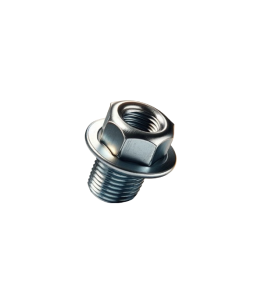Rivet Nut

Rivet Nut

Rivet Nut
Rivet NutA rivet nut, also known as a blind rivet nut or a threaded insert, is a type of fastener that provides a threaded hole in materials that are too thin to be tapped (threaded) or in applications where only one side of the material is accessible for hardware installation. It’s a versatile and reliable solution for adding threads to thin or hollow materials.
Key characteristics and uses of rivet nuts include:
1.Design: Rivet nuts have a cylindrical shape with internal threads and a larger flanged head. They are inserted into pre-drilled holes in the material.
2.Installation: They are installed using a special tool that pulls the body of the nut up, causing the backside of the nut to flare and clamp against the back surface of the material. This action creates a firm and secure fit.
3.Materials: Rivet nuts are made from various materials like aluminum, steel, stainless steel, or brass to suit different environmental and mechanical requirements.
4.Applications: They are widely used in the automotive industry, aircraft manufacturing, electronics, and sheet metal work. Rivet nuts are ideal for applications where the material thickness does not allow for a standard tapped hole.
5.Advantages: They provide a strong thread in thin materials, allow for quick assembly, and do not require access to both sides of the material. They are also useful in situations where the material may be too brittle or soft for traditional tapped threads.
6.Types: There are various types of rivet nuts, including round, hexagonal, closed-end, and countersunk, each designed for specific applications and material types.
Rivet nuts are a practical solution for adding load-bearing threads to thin or hollow materials, where traditional nuts and bolts can’t be used.
